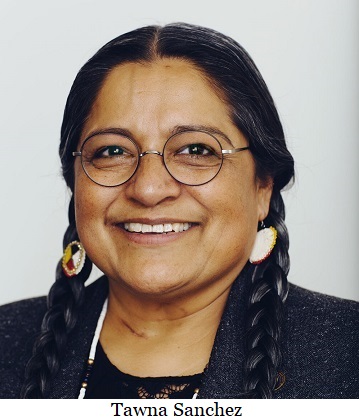Proposed 9-8-8 tax highest in nation
The Oregon budget was used as an excuse to end the Senate walkout, but it is a baseless excuse since the legislature technically had until September 2023 to get the state budget passed. The budget is bloated with new expenditures that will potentially boomerang when Oregon’s revenues catch up with the economy.
One of those new expenditure bills is
HB 2757, which provides funding for a coordinated crisis services system including improving and maintaining the 9-8-8 suicide prevention and behavioral health crisis hotline.
Who wouldn’t support a suicide and health crisis hotline? But there is something troubling about how the sponsors, Representatives Tawna Sanchez (D-N Portland) and Rob Nosse (D-Portland) are using the bill to overcharge 13 times what is actually needed. The
proposed funding is $0.50/line/month for the biennium = $68,520,000 where what is needed is $5,000,000, which is $0.0346/line/month. It’s the highest charge of any state, and 44 states have no phone tax for 9-8-8 services.
Oregon Business and Industry points to the unstructured and open-ended system for the large amount of revenues raised. “We understand that if this bill were to pass, Oregon’s 9-8-8 crisis intervention tax
would be the highest in the nation. As such, legislators should clearly understand the need for this level of taxation, or conversely, if a successful 9-8-8 program could be administrated at a more economic funding level.â€
A D V E R T I S E M E N T

A D V E R T I S E M E N T
The Oregon Telecommunications Association states their providers adopted the Federal Communications Commission 9-8-8 National Suicide Prevention Hotline and are already in compliance. They question the value and cost of adding an actual response to callers. Currently, 97.11% are resolved by the call counselor. Records show that EMS is contacted 2.56% of the time and a Mobile Crisis Team is contacted 0.33% with calls answered within 15 seconds.
Voters should ask about prior funding:
- HB 2417 (2021) – $5 million General Fund to initiate the crisis hotline center (contract with Lines for Life and Northwest Human Services). $10 million General Fund distributed to counties to establish and maintain mobile crisis intervention teams that could respond to crisis in the community.
- HB 5024 (2021) – $6.5 million General Fund for Mobile Response and Crisis Stabilization Services (MRSS) that continued expansion of crisis stabilization services, resulting in coverage across the entire life span of Oregonians regardless of insurance status.
- HB 5202 (2022) – Included $1.8 million General Fund and 10 positions for ongoing agency operations to support implementation and oversight of the system envisioned by HB 2417, the development of standards for statewide mobile crisis teams, development of Medicaid reimbursement opportunities and business information system and financial management support.
The reason for the bloated funding may be in the Oregon Alliance to Prevent Suicide testimony. “We have a sense of urgency about passage of HB2757 because it is an essential element of our work to save lives and reduce Oregon’s high suicide rate. The national 988 line emerged out of the suicide prevention movement, and has appropriately grown to provide support and stabilization for people in a behavioral health crisis.â€
The Oregon Health Authority is to establish an advisory committee to provide primary oversight and direction on operation of statewide coordinated crisis system. The OHA oversight seems to cost $63 million plus federal available funds. Cities establishing a program providing mobile crisis intervention service, must include their own funding in their plan. Since the $0.50 is identified as a “tax,†it takes a three-fifths majority vote to pass.
--Donna Bleiler| Post Date: 2023-06-18 20:19:17 | Last Update: 2023-06-18 21:31:21 |







